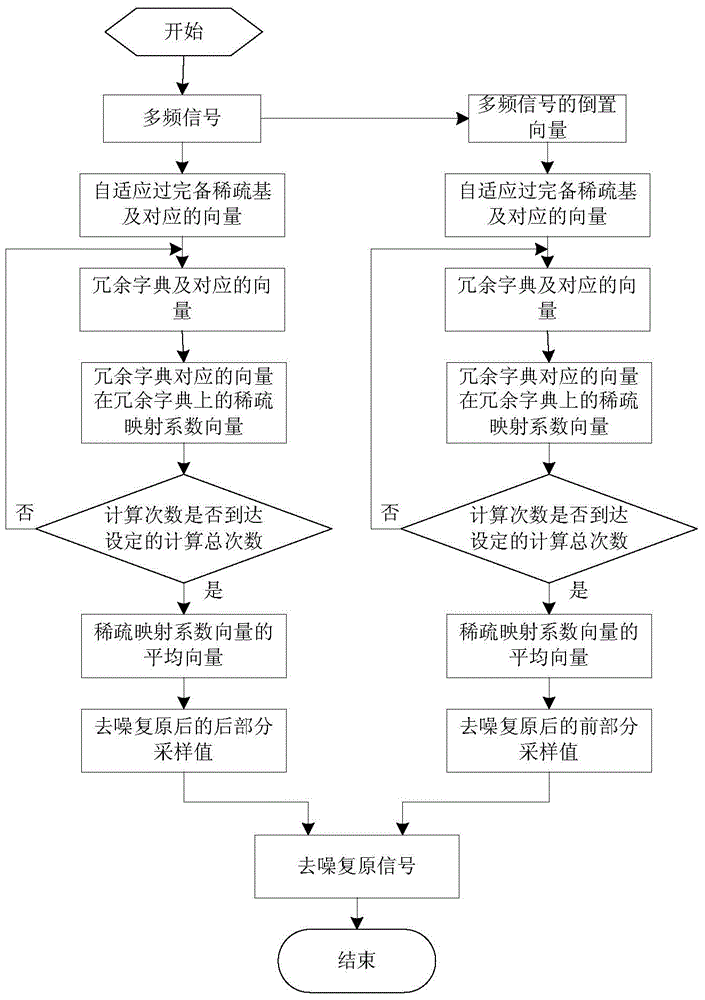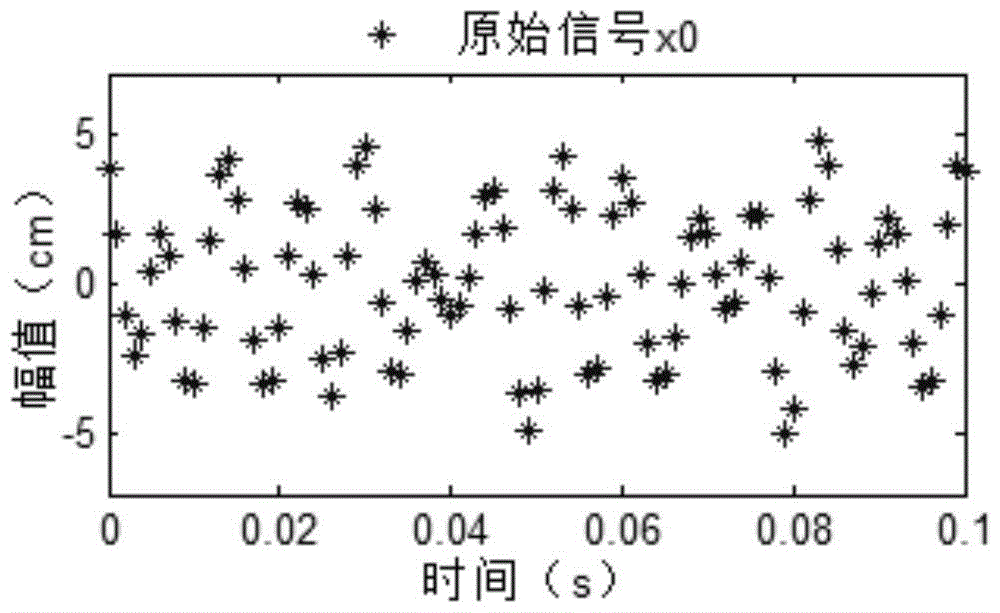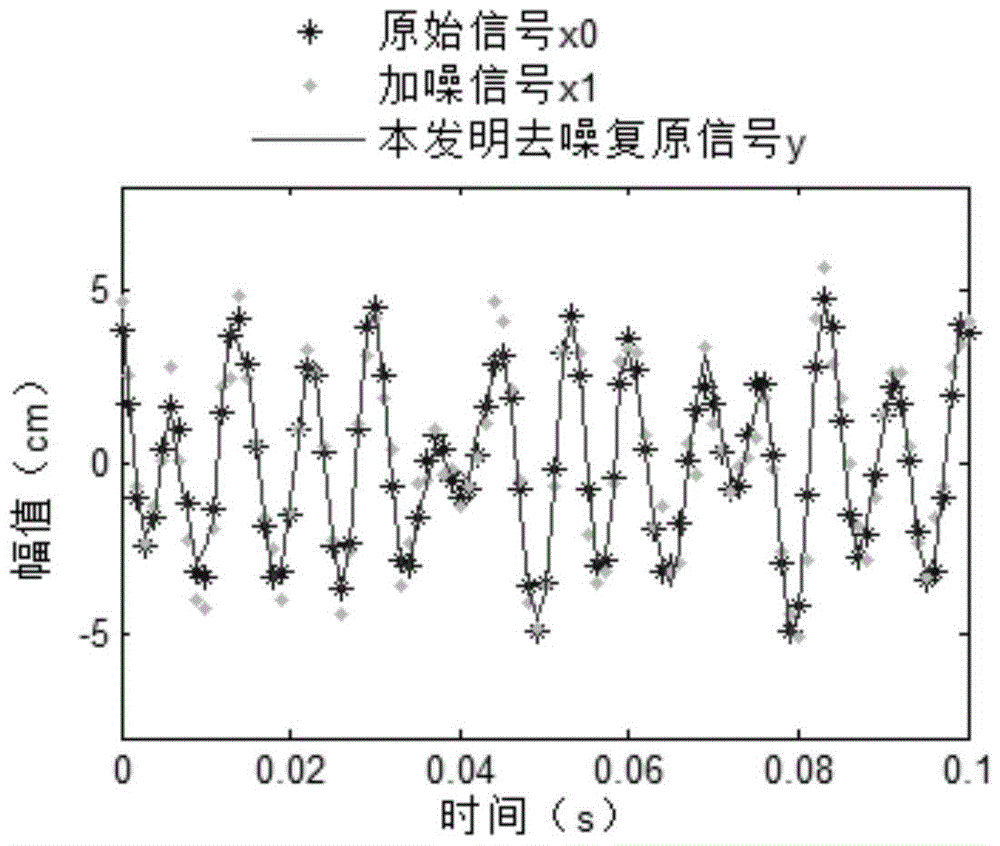A Multi-frequency Signal Denoising Method Based on Sparse Autoregressive Model Modeling
An autoregressive model and multi-frequency signal technology, applied in the field of signal denoising, can solve the problems of good denoising effect and low computational complexity
- Summary
- Abstract
- Description
- Claims
- Application Information
AI Technical Summary
Problems solved by technology
Method used
Image
Examples
Embodiment Construction
[0033] The present invention will be further described in detail below in conjunction with the embodiments of the drawings.
[0034] The present invention proposes a multi-frequency signal denoising method based on sparse autoregressive (AR) model modeling, and its flow chart is as follows figure 1 As shown, it includes the following steps:
[0035] ① Express the multi-frequency signal to be processed in vector form as Where (x 1 x 2 … X n ) T Is (x 1 x 2 … X n ), n represents the number of sampling points of the multi-frequency signal, n≥500, x 1 Represents the first sample value of the multi-frequency signal, x 2 Represents the second sample value of the multi-frequency signal, x n Represents the nth sample value of the multi-frequency signal.
[0036] Here, the value of n is preferably greater than or equal to 500 and less than or equal to 2000. For example, n=1000. This is because if the value of n is too small, the adaptive over-complete sparse basis constructed subsequentl...
PUM
 Login to View More
Login to View More Abstract
Description
Claims
Application Information
 Login to View More
Login to View More - R&D
- Intellectual Property
- Life Sciences
- Materials
- Tech Scout
- Unparalleled Data Quality
- Higher Quality Content
- 60% Fewer Hallucinations
Browse by: Latest US Patents, China's latest patents, Technical Efficacy Thesaurus, Application Domain, Technology Topic, Popular Technical Reports.
© 2025 PatSnap. All rights reserved.Legal|Privacy policy|Modern Slavery Act Transparency Statement|Sitemap|About US| Contact US: help@patsnap.com



